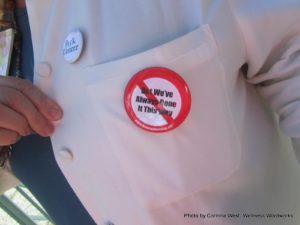Do you think youth prevention programs, sports, arts programs, or spiritual approaches can help people through emotional distress? We’ve been calling for this dialogue for years and now it’s time to get out in your city and participate in it. In four days in Kansas City we’ll have the first ever large scale public forum that includes information about medical harm and the full range of entrepreneurial solutions. This is a big deal, with Kathleen Sebelius, the director of Health and Human Services there, and the mayors of both Kansas City, MO, and Kansas City, KS.
Since I’m the one that helped get this project going in Kansas City, I’ll be able to get up on stage and deliver a poem about peer support, “The Details of the Revolution.” I’ve also got the one page psychiatric survivor manifesto that you helped edit which will be included right behind the agenda for everyone. Also, I’ve been able to insert a lot of medical harm aware language into the local discussion guide.
The Details of the Revolution
Your mission, should you chose to accept?
Reproduce these efforts in your cities.

Kansas City is hosting one of only 10 big events, but there are events going on nationwide (check this map for the full listing). There are a ton of events total listed on the map. Ten of the events are following a national deliberative democracy formula, and these are the ten most important events. These are all 300 person events that last all day. The cities hosting them had to raise $200,000 for the project, part to host the event, and part as seed money to implement the action plan that these events come up with. So a group of 10-20 like minded people could bring critical mass to the event if you got to one of these 10 main events. But it’s also good to attend the other non-central events, and to join in the online discussion.
.
Action steps:
1. Show up at a main event, a peripheral event, or online:
- Sept 18 (Today!): Rethinking Psychiatry, Portland Oregon.
- Sept 21 (This is us – register now!) Creating Community Solutions, Kansas City
- Sept 28 Many Faces of Mental Health, Boston, MA
- Oct. 12: Creating Community Solutions, Washington, DC. This one will be especially important after the Naval yard Shooting.
- Upcoming: Akron, OH and Birmingham, AL
- Four more cities are yet to be decided as they work to raise the $200,000.
- Online everywhere now.
2. Call the organizer ahead of time and ask to to be on the steering committee, say they probably don’t have the psychiatric survivor viewpoint represented yet. Ask them to include our psychiatric survivor manifesto. Ask them to use Kansas City’s discussion guide as a starting point.
3. Get loud. Get heard. We’ve been asking for these debates for years and our point of view is only going to be included if we make it happen.












Kansas City update: We already have 27 psychiatric survivors signed up for this event!
Report comment
Corinna,
I left a few opinions in that website, was contacted by Mike Shafarenko that I should leave my opinions with my real name. When I replied that I could not do that given my condition of survivor of psychiatric abuse, all my comments, and the replies that I got, were removed without further explanation from here http://theciviccommons.com/conversations/experiences-with-mental-health . Honestly, that website seems to be more interested in partnering with NAMI, which doesn’t need any introduction here, to make it easier for so called “mentally ill” access “treatment”, ie, drugs, than anything else.
Obamacare was approved with the support of Big Pharma. Now the US government is paying back its debts to them with initiatives like this.
Report comment
Can you make up a more reali sounding fake name? Unfortunately I haven’t been able to spend any time on that website yet as I’m still recoverying from a traumatic brain injury and computer use is still somewhat painful. I’m glad you’re on top of it.
You might refer Mike to this video showing that they should specifically be looking for our perspective. http://www.youtube.com/watch?v=h93u0MPmh8g
Report comment
Corinna,
Concerned to hear of your traumatic brain injury. I hope you find some good care.
Duane
Report comment
I love that button in the picture “but we have always done it that way”.
I was working in an adult home many years ago and two people called in sick and I was asked to set up the breakfast trays. The kitchen staff didn’t like me all that much so when I was all finished with putting on the silverware, the diet cards and other stuff they quickly jumped on me for my big “mistake” of forgetting to put salt and pepper on the trays.
I said to them “no one puts salt and pepper on French toast!”
There response to this “But that’s the way we have always done it”.
I made fun of them saying that for the rest of the time I worked there.
Here is another one, why is it bad to put hot food in the refrigerator ?
Its not bad for the refrigerator that has a compressor perfectly capable of of removing the few BTUs of heat in the hot food for less than a pennys worth of electricity. The reason you don’t put hot food in the refrigerator is because your great grandma told your grandma who told your mother who told you not to put hot food in the fridge was she worried about melting the ice in the ICEBOX, overflowing the drip pan and spoiling the food back in 1920 !
“But that’s the way we have always done it” !
Report comment